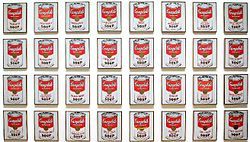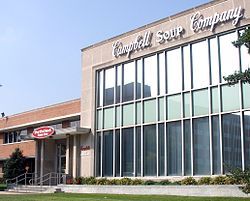Business closings bring huge losses
by Katy Grimes | November 28, 2012 4:09 pm
Nov. 28, 2012
By Katy Grimes
 [1]
[1]
When a business closes it’s doors forever, the impacts are far-reaching.
The announcement of the upcoming closure of the Campbell’s Soup plant in Sacramento will have regional and statewide impact.
Econ. 101
I may have been a political science student, but my husband is a longtime Sacramento manufacturer. For many years I lived and worked Econ. 101 lessons alongside 250 employees.
My businessman husband was an economics major in college and frequently reminds me that economics education in college has seen a dramatic shift. There weren’t many Keynesian economists in universities back then. Unfortunately, today, Keynesian economics seems to be the only economic theory coming out of universities.
Keynesian economics is an economic[2] theory stating that aggressive government interventions in the marketplace and monetary policy are the best way to ensure economic growth and stability.
Economist Walter Williams has explained for many years the reality of the free market economy in which businesses must make a profit in order to survive: “In the market, when a firm fails to please its customers and fails to earn a profit, it goes bankrupt, making those resources available to another that might do better. That’s unless government steps in to bail it out.”
Williams has long argued against Keynesian economics, “The ruthlessness of the market discipline, which forces firms to please customers and thereby earn profits, goes a long way toward explaining hostility toward free market capitalism.”
Campbell’s Soup
 [3]
[3]
Campbell’s Soup has five large plants in the United States. But the Sacramento processing plant with 700 employees is the only large one closing. Campbell’s Soup also will close a tiny New Jersey spice plant with 27 employees and consolidate spice production at its Milwaukee plant.
What hasn’t been reported are the many suppliers and vendors associated with a large manufacturing plant like the Campbell’s Soup Sacramento location.
Corrugated and boxes
A Sacramento box manufacturing plant owner recently told me the story of Western Corrugated. In 1963, Sacramento company Western Corrugated was a major supplier to Campbell’s Soup in Sacramento. The box maker had to store so much for Campbell’s Soup that stacks of the box materials stood 25-30 feet high within the building. The Sacramento company shipped truckloads out every day to Campbell’s Soup.
During the very busy summer tomato season, when Campbell’s Soup ramped up efforts to can tomatoes, Western Corrugated’s 65 employees grew to 110.
Western Corrugated is gone. But whatever box maker supplies Campbell’s today will lose it’s largest client.
Campbell’s Soup also has an on-site can manufacturer. This business will also lose out, and be forced to lay off many employees.
Campbell’s Soup has its own cogeneration plant on site, which many speculate is one of the biggest reasons the soup company decided to close the Sacramento plant. Cogeneration is the use of a heat engine or a power station to simultaneously generate both electricity and useful heat. All thermal power plants emit a certain amount of heat during electricity generation, subjecting Campbell’s Soup to California’s stringent cap and trade emission laws and carbon emission credit auctions because of AB 32, the Global Warming Solutions Act of 2006.
The carbon emission credits are nothing more than a tax on business, and the caps on emissions are fabricated by the California Air Resources Board.
The Campbell’s Soup Sacramento plant is so large and significant the railroad runs right to it.
Campbell’s Soup closure
With the closure of Campbell’s Soup, the Sacramento region and all of California will lose. The label manufacturers, can manufacturers, the energy produced for SMUD through the cogeneration plant, property taxes, employment taxes, corporate taxes, and the flow of revenue from employees living in the region — all will be lost.
The real impact of a business closure is the city the business supports. The payroll alone for Campbell’s Soup is between $35 and $40 million a year.
Campbell’s Soup announced that they will ship all of the Sacramento plant equipment out of state to their other U.S. plants.
California government
With the new Democrat supermajority in the Assembly and Senate, and with a Democratic governor, California could see even greater taxes in the near future, particularly on the wealthiest Californians and corporation. Perhaps taxing not just income, but assets. There has been talk about a wealth tax for many years in California, with some politicians insisting that this helps to equal out the “wealth inequality” in the state.
A real stimulus to the economy is a business, and the fiscal effect it has when contracting with other businesses, as well its employees and their spending ability. California politicians ought to be careful not to kill off the only real stimulus left in the state.
- [Image]: http://www.calwatchdog.com/2012/11/28/business-closings-bring-huge-losses/250px-campbells_soup_cans_moma/
- economic: http://www.investopedia.com/terms/k/keynesianeconomics.asp#ixzz2DWrkFVWB
- [Image]: http://www.calwatchdog.com/2012/11/28/business-closings-bring-huge-losses/250px-campbellsoupheadquarters/
Source URL: https://calwatchdog.com/2012/11/28/business-closings-bring-huge-losses/